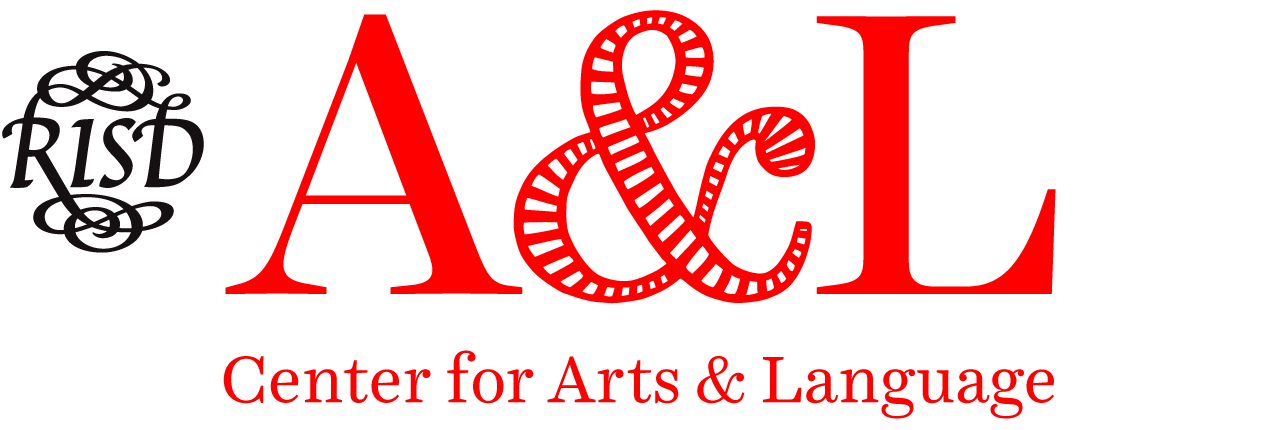Faculty Collaboration with A&L
A&L works closely with faculty to inform what we do. The great majority of our service supports students in their coursework—Liberal Arts papers, graduate written thesis, presentations in classes or in critiques—with the balance devoted to professional and personal projects. We are always eager to hear about your writing, research, presentation, and related assignments. The more we understand curricula and learning goals, the better we can align our support with academic expectations and student needs. (Please feel free to send us your syllabi and assignment sheets.)
We also support your teaching. Our staff consults individually with faculty and offers occasional workshops on topics such as: creating effective writing and speaking assignments; giving effective feedback on student writing; multimodal composition; understanding how language and culture affect academic engagement; developing teaching methods to best support multilingual learners. We also offer feedback on faculty members’ own publishing projects, conference presentations, etc.
A&L’s staff also collaborates with faculty members to design and deliver a variety of in-class workshops. Common topics include: research writing and documentation, developing a thesis, formal analysis, writing for critique, artist talk preparation, writing criticism, conducting interviews, and grant-writing. We are also available to facilitate activities and discussions on intercultural communication in the multilingual classroom. In each case, we work closely with you to adapt the content specifically to your course. Contact us anytime to discuss, with as much advance notice as you can.
Our handouts on grammar, rhetoric, and documentation and our video tutorial on writing research papers are available under the Resources tab. We encourage you to share them in classes. Links to recommended articles for faculty are in our Links page under Resources. We also have a library of books about writing, research, and teaching writing, as well as books written by artists and designers, all available for faculty borrowing.
Recommending A&L
We appreciate and encourage faculty recommending our services to students. For general referrals, you might say in class or note in your syllabus something along these lines: “I encourage you to visit the Center for Arts & Language (15 West, 2nd floor; artsandlanguage.risd.edu) as part of your process in writing papers, preparing for presentations and critiques, or any other communication project that would benefit from a tutor’s feedback and support in written, spoken, visual, and multilingual communication.” You might suggest that every project can benefit from such a sounding board (we think so!).
For individual students seeking extra or ongoing support for any reason (developing English language proficiency, strong interest in building writing skills), please ask them to reach out to us, or contact Jen Liese yourself and describe your concern. A direct introduction is more effective than saying “go to A&L”—it creates a relationship and helps us tailor our services. We may set up weekly or biweekly appointments with a specific tutor, recommend self-study resources, or find other ways to support consistent progress.
Please note that we discourage “required” visits to A&L for two reasons: students who come voluntarily are more apt to benefit from tutoring; and we can’t guarantee open appointments during busy weeks, especially when a whole class is required to visit at once. That said, we’re always willing to talk and try, so check in if you want to make a special plan.
A&L’s Correction Policy
A&L does not proofread student writing. There are often many other “global” issues (weak argument, unclear organization, etc.) that prevent effective communication of ideas, and we’re working on those as much or more than “local” issues in grammar. Most importantly, proofreading doesn’t help a student learn to develop and revise their own writing; it just fixes errors in that one paper.
What we do offer in regard to grammar and mechanics (local issues) is to focus on one or two habitual, repeated errors per appointment: we explain the rule around it, help the student to fix it, and provide a handout or other resources on it. This way, the student learns something and incrementally builds knowledge and fluency to carry forward.
This kind of patient support is especially important for non-native English speakers. Learning to write according to American/Western academic standards and to sound “native” in writing is a very long process—as long and often incomplete as sounding “native” in speaking. With this in mind, we focus our feedback on appropriate priorities and reasonable expectations for all students.
Links and Related Reading
Teaching Writing
Rhoda Flaxman, Creating Meaningful Writing Assignments
Rhoda Flaxman, Offering Meaningful Commentary on Student Writing
Nancy Sommers, Responding to Student Writing
Kerry Walk, Teaching with Writing
Muriel Harris, Talking in the Middle: Why Writers Need Writing Tutors
Teaching Writing in Art and Design Schools
Writing Research Reports by RISD Faculty
A collection of internal research reports from RISD’s Academic Commons Program (2013–15). Six focus on writing pedagogy: Ciutto, Law & Galvez, Leader, Cabell & Stubbs, Byrne, and Cornell (links available only when connected to RISD Wifi).
Christina Halliday, “I came to art school so I wouldn't have to write...”
Reflections on writing in art school by former faculty member at Ontario College of Art and Design.
Orr, Blythman, and Mullin, Designing Your Writing/Writing Your Design
Comparative study of writing experiences at art and design schools in the US and UK, published in Across the Disciplines
Teaching in Multilingual Environments
Writing Across Borders
Video on the various rhetorical traditions of different cultures in the context of American higher education.
Multiliteracy Pedagogy
A Pedagogy of Multiliteracies: Designing Social Futures
The New London Group’s seminal 1996 article arguing that “The multiplicity of communications channels and increasing cultural and linguistic diversity in the world today call for a much broader view of literacy than portrayed by traditional language-based approaches.”
